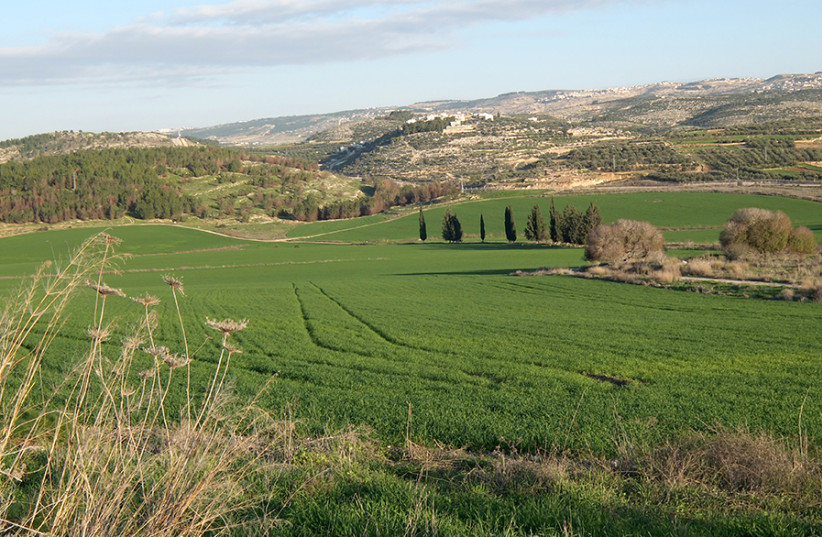As Palestinianism spreads throughout the world, it attracts support because it presents itself as a national liberation movement that seeks to free itself from Israeli occupation, colonialism, oppression and persecution. An examination of its real agenda, however, available in the PLO Covenant, Hamas Charter and its daily messages, reveals its true intention: isolating and destroying Israel – a second Holocaust, if they could.
This explains why efforts to achieve a peaceful solution, such as the Oslo Accords, have failed. Unwittingly, calls for a two-state solution: a Palestinian state in Judea and Samaria (the West Bank), in addition to Jordan – which many consider to be or should be the already-existing second state – have contributed to confusion about why Palestinian leaders have rejected such proposals, and the consequences. Unfortunately, there seems to be an unwillingness to accept the reality of what Palestinianism means, and what is at stake – not only for Israel, but for the world.
Historical Background
The first time the concept of Eretz Yisrael (The Land of Israel) is seen as the land which God gave to the Jewish people to build a Jewish civilization is in Torah. This is confirmed in all Jewish texts and in Judaism; that is the meaning of the “homeland of the Jewish people.” It is why the First and Second Temples were built in Jerusalem on the Temple Mount. There is no such concept in Christianity, or Islam; these religions have holy places, but no specific “holy land.”
Palestinianism denies this historical fact, and denies the right of the Jewish people to reestablish a state in Eretz Yisrael.
Ironically, Palestinianism presents a danger not only to Israel, but also to Islam: by focusing on Jerusalem as a holy city and the Temple Mount as holy (and exclusively) for Muslims, rather than the traditional holy cities of Medina and Mecca. This is not only ahistorical, but has no basis in the Quran, or in the writings of Islamic scholars. It uses Islam and Islamic references to legitimize violence and genocide.
This distortion had been promoted by Amin al-Husseini, the mufti of Jerusalem, since 1920, and the Moslem Brotherhood since 1928, anti-Jewish and anti-Zionist organizations that have spread throughout the world, with affiliates on nearly all college and university campuses. It has been adopted by all Islamic organizations, most European countries and by most of the international community, including the UN. This has undermined the meaning, purpose, ethics and morality of Islam as a religion.

Palestinianism, therefore, is a threat to the ideals of Western civilization. It promotes violence against Jews as a value, and one which justifies suicidal attacks as a worthy ideal. That includes attacks against those who support Israel, and targets like New York City. It is what inspired Islamic leaders, such as al-Husseini, to instigate pogroms against Jews during the 1920s, 30s and 40s, and why he supported the Nazis and their “Final Solution.”
It was a way of turning Arab nationalism (as it was known before 1948) into a destructive force. It was and is the basis of the PLO, Hamas and other terrorist organizations. And it is the basis of “Jihad.” Palestinianism seeks to turn the world against the Jewish people, especially those in Israel. That is the meaning of Intifada.
Palestinianism promotes the “Nakba” narrative: that Israel’s establishment in 1948 was and continues to be a catastrophe; that Israel expelled and slaughtered Arabs in the war that resulted when it was attacked by five Arab countries, supported by Britain; that those who became refugees and their descendants are entitled to return to Israel; and that Jews who live in areas conquered by the IDF in 1967 must be expelled.
This, however, is only the first step in the crusade to destroy Israel, now supported by Iran and Arab countries such as Qatar – and, of course, global jihadists, like ISIS and al Qaeda.
Those who support “Palestinian self-determination” and the two-state solution, therefore, must consider what that means and understand why all efforts to resolve the conflict have failed. How would a second Palestinian state, in addition to Jordan, resolve the Arab refugee problem?
How would such a state resolve the issue of millions of Arabs living in UNRWA towns and villages, in addition to millions who live in the region and around the world and consider themselves to be Palestinians? Why shouldn’t Jordan be recognized as the “Palestinian homeland?” What is a humanitarian solution? What makes sense?
The author is a PhD historian, writer and journalist in Israel.
